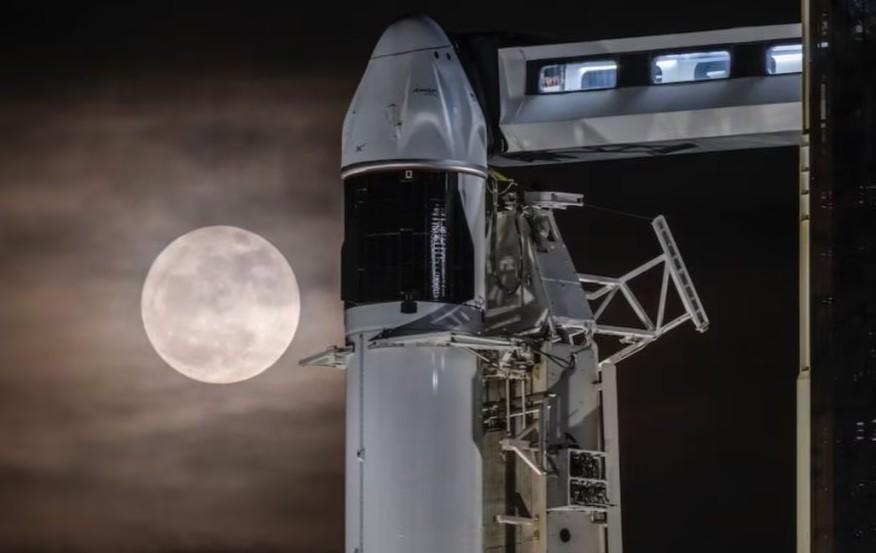
Pichai, Musk & Bezos competing to establish data centres on Moon: Report
In a surprising turn of events, tech giants Sundar Pichai, Elon Musk, and Jeff Bezos are reportedly competing to establish data centres on the Moon. According to a recent report by the Wall Street Journal, these industry leaders are exploring the possibility of storing and processing data on the lunar surface. The report highlights the Moon’s unique environment, which offers a stable and low-temperature setting in certain regions, making it an attractive location for data centres.
The idea of establishing data centres on the Moon may seem like the stuff of science fiction, but it’s an concept that’s gaining traction among tech industry leaders. The Moon’s surface offers a unique combination of advantages that make it an attractive location for data storage and processing. For one, the Moon’s low gravity and lack of atmosphere reduce the risk of natural disasters such as earthquakes and hurricanes, which can be devastating to data centres on Earth.
Another significant advantage of the Moon’s environment is its low temperature. In certain regions, the Moon’s surface temperature can drop to as low as -173°C, which is even colder than the coldest temperatures found in Antarctica. This natural cooling effect could significantly reduce the cooling costs associated with data centres, which are typically one of the largest expenses for these facilities. On Earth, data centres require complex cooling systems to keep servers at a stable temperature, which can account for up to 40% of the total energy consumption.
The Moon’s open land also offers the possibility of building huge facilities without the environmental concerns faced on Earth. On our planet, data centres are often built in areas with limited space, which can lead to conflicts with local communities and environmental groups. In contrast, the Moon’s surface offers a vast, untouched expanse of land that can be used to build massive data centres without any of these concerns.
So, what’s driving the push to establish data centres on the Moon? One major factor is the increasing demand for data storage and processing. As more and more devices become connected to the internet, the amount of data being generated is growing exponentially. This has led to a surge in demand for data centres, which are struggling to keep up with the increasing demand.
Establishing data centres on the Moon could provide a solution to this problem. By leveraging the Moon’s unique environment, tech companies could build massive data centres that can store and process vast amounts of data. This could also provide a competitive advantage, as companies with lunar data centres could offer faster and more reliable data storage and processing services to their customers.
Sundar Pichai, Elon Musk, and Jeff Bezos are all reportedly exploring the possibility of establishing data centres on the Moon. Pichai, the CEO of Google, has been investing heavily in the company’s cloud computing division, which could potentially benefit from a lunar data centre. Musk, the CEO of SpaceX, has been working on a lunar mission that could potentially establish a human settlement on the Moon, which could also include a data centre. Bezos, the CEO of Amazon, has been investing in his space exploration company Blue Origin, which could potentially establish a lunar data centre.
While the idea of establishing data centres on the Moon is still in its infancy, it’s an exciting development that could potentially revolutionize the way we store and process data. As the demand for data storage and processing continues to grow, it’s likely that we’ll see more companies exploring the possibility of establishing lunar data centres.
In conclusion, the report of Sundar Pichai, Elon Musk, and Jeff Bezos competing to establish data centres on the Moon is a fascinating development that highlights the innovative spirit of the tech industry. As we continue to push the boundaries of what’s possible with technology, it’s likely that we’ll see more exciting developments in the years to come.






